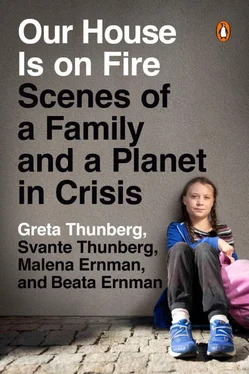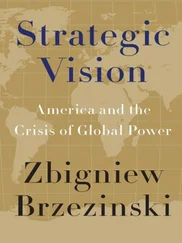Greta Thunberg - Our House Is on Fire - Scenes of a Family and a Planet in Crisis
Здесь есть возможность читать онлайн «Greta Thunberg - Our House Is on Fire - Scenes of a Family and a Planet in Crisis» весь текст электронной книги совершенно бесплатно (целиком полную версию без сокращений). В некоторых случаях можно слушать аудио, скачать через торрент в формате fb2 и присутствует краткое содержание. Город: New York, Год выпуска: 2020, ISBN: 2020, Издательство: Penguin Books, Жанр: Биографии и Мемуары, Публицистика, на английском языке. Описание произведения, (предисловие) а так же отзывы посетителей доступны на портале библиотеки ЛибКат.
- Название:Our House Is on Fire: Scenes of a Family and a Planet in Crisis
- Автор:
- Издательство:Penguin Books
- Жанр:
- Год:2020
- Город:New York
- ISBN:978-0-14313-357-5
- Рейтинг книги:4 / 5. Голосов: 1
-
Избранное:Добавить в избранное
- Отзывы:
-
Ваша оценка:
- 80
- 1
- 2
- 3
- 4
- 5
Our House Is on Fire: Scenes of a Family and a Planet in Crisis: краткое содержание, описание и аннотация
Предлагаем к чтению аннотацию, описание, краткое содержание или предисловие (зависит от того, что написал сам автор книги «Our House Is on Fire: Scenes of a Family and a Planet in Crisis»). Если вы не нашли необходимую информацию о книге — напишите в комментариях, мы постараемся отыскать её.
Our House Is on Fire: Scenes of a Family and a Planet in Crisis — читать онлайн бесплатно полную книгу (весь текст) целиком
Ниже представлен текст книги, разбитый по страницам. Система сохранения места последней прочитанной страницы, позволяет с удобством читать онлайн бесплатно книгу «Our House Is on Fire: Scenes of a Family and a Planet in Crisis», без необходимости каждый раз заново искать на чём Вы остановились. Поставьте закладку, и сможете в любой момент перейти на страницу, на которой закончили чтение.
Интервал:
Закладка:
SCENE 36.
The Luxury Trap
In Sweden, according to the Swedish Environmental Protection Agency, we release approximately 11 tonnes of CO 2per person per year if we take in to account both what we emit here at home and what we consume abroad. These are known as our consumption-based emissions. According to the WWF’s latest Living Planet Report , our ecological footprint is among the largest in the world, and if everyone were to live like us it would require 4.2 Planet Earths.
We tell ourselves that we can still choose, that our emissions can be offset somewhere else. Or that we can make our own partial deals with nature – such as becoming a vegan in order to keep flying, or buying an electric car to keep shopping and eating meat, or paying climate compensation for things that we plan to do tomorrow when, from a sustainability perspective, we’re already so far in debt that the numbers run far beyond our comprehension.
The hard truth is that our ecological credit ran out when we passed 350 parts per million of CO 2in the atmosphere. More precisely, in 1987.
SCENE 37.
Windfall Apples and Radioactive Waste
‘Sweden will become the world’s first fossil-free welfare state,’ the prime minister said in the government declaration of autumn 2017. It sounded great. Almost as great as the government declaration two years earlier, when he basically said exactly the same thing. But the truth of the matter is that in those two years absolutely nothing had been done to move us any closer to that green, fossil-free welfare nation.
According to a 2018 study by the Swedish Society for Nature Conservation, the Swedish environmental budget amounts to 11 billion Swedish kronor ($1.2 billion). At the same time, the government budget contains environmentally damaging subsidies of 30 billion kronor – subsidies that make it cheaper to emit greenhouse gases. So, basically we send out a fire engine full of water at the same time as we send out three tankers full of gasoline – both meant to extinguish a massive fire.
But.
‘Fossil-free’ is undeniably an extremely good word. Both growth-friendly and radical. And at least as powerful as ‘sustainable’, although with considerably fewer requirements. The fact is, ‘fossil-free’ can mean anything from solar energy and organic windfall fruit to deforestation, carbon trading and radioactive waste.
Investing in words like ‘fossil-free’ means that we can push words like ‘change’ into the distant future and instead delay our ecological-payment due date for many more years to come. That way we can carry on like before while making bold, environmental statements like ‘we are among the most sustainable societies in the world.’
SCENE 38.
The Fine Print
We often hear that soon we’re going to have to get by on a measly 2 tonnes of CO 2per person per year. Or that here in Sweden we’ll be forced to reduce our emissions to a tenth of what they are now if we’re going to comply with the Paris Agreement. But all such calculations depend on things far beyond anyone’s control. Like inventions that have not yet been invented. Such as gigantic machines that could suck our carbon dioxide out of the atmosphere or a sustainable forest and agriculture industry that doesn’t exist today.
Or that none of the earth’s other 7.7 billion people will somehow come up with the idea of raising their standard of living and start mimicking the daily habits we now consider to be our right.
‘The two tonnes figure is unfortunate,’ Kevin Anderson at Uppsala University says. ‘It actually means nothing and I think it’s an old leftover from one of the first UN IPCC reports, where they took simplistic emissions figures and said that they needed to be cut in half. Our CO 2emissions must go down to zero, that’s the bitter truth.’
So the ‘nightmare’ figure of 2 tonnes may very well not be enough.
On the other hand this doesn’t mean that everything is hopeless or too late. It means we have to change our way of life. Starting right now.
SCENE 39.
A Dream Play
The surreal unreality is almost the worst part. There are moments when you wonder if you’ve lost your mind.
Gone crazy.
All the countless occasions when you realize that what makes up our everyday lives – everything that we call normal – is often as far from normal as you can imagine.
All the incomprehensible moments when everything around you is transformed into a theatre or movie production.
Like an air-conditioned hotel room in a boiling far away major city. A shopping centre with 400 stores. Driving through a snowstorm until you reach shelter in something we call a motorway tunnel. A supermarket with groceries from every corner of the world. Or the relief in meeting the friendly gaze of a Swedish-speaking flight attendant who nods in recognition as you board an SAS flight somewhere on the other side of the globe.
All the little things that we – and all those who populate our everyday lives – perceive as natural, keeping us safe and out of danger.
Now most of all this resembles a scenic design; magnificent decor from the age of humans: the Anthropocene.
The party is over.
The play is over.
And so a window swings open and a new light fills the room. Unreality becomes reality.
Fabrics and curtains flutter in the wind. Props whirl around in drifts. Masks and dramatic interpretations are done away with and the reality rings out over stage and auditorium. Everything is turned upside down. Back and forth.
We who have separated our culture from nature and always placed the facade and surface in the centrestage spotlight have suddenly crossed an invisible line. One by one, we are slowly getting off the stage, and yet are still there, as if standing in the middle of a play as it frantically continues around us.
But this performance is already over and now it’s time to start changing our behaviour. Tear down the fourth wall. Stop pretending.
A society that prioritizes the surface over content can never be sustainable, and we’re not going to be able to solve the climate and sustainability crisis if we don’t confront the culture that forbids us from talking about how we’re really doing – all the things we have chosen to sweep under the rug for decades and centuries.
SCENE 40.
The Art of Lying
‘Sometimes we human beings mess things up.’ The prime minister is talking about the climate in a direct broadcast from Parliament.
‘He’s lying,’ Greta says, getting up from the sofa in front of the TV. ‘He’s lying!’
‘What do you mean?’ I ask.
‘He says that it’s we people who have messed it up, but that’s not correct. I’m a person and I haven’t messed it up. Beata hasn’t messed it up, and you and Dad haven’t done it either. At least not that much.’
‘No, I guess you’re right about that.’
‘He’s just saying that so we will carry on as usual, because if everyone is guilty no one is guilty. But someone is actually guilty, so what he’s saying isn’t true. There are like a hundred big companies that account for almost all emissions. And there are a few extremely rich men who have made thousands of billions destroying the whole planet, even though they know all about the risks. So the prime minister is lying, just like all the rest.’
Greta sighs.
‘It’s not everyone who has messed it up. There are a few, and to be able to save the planet we have to take up the fight against them and their companies and their money and hold them accountable.’
Читать дальшеИнтервал:
Закладка:
Похожие книги на «Our House Is on Fire: Scenes of a Family and a Planet in Crisis»
Представляем Вашему вниманию похожие книги на «Our House Is on Fire: Scenes of a Family and a Planet in Crisis» списком для выбора. Мы отобрали схожую по названию и смыслу литературу в надежде предоставить читателям больше вариантов отыскать новые, интересные, ещё непрочитанные произведения.
Обсуждение, отзывы о книге «Our House Is on Fire: Scenes of a Family and a Planet in Crisis» и просто собственные мнения читателей. Оставьте ваши комментарии, напишите, что Вы думаете о произведении, его смысле или главных героях. Укажите что конкретно понравилось, а что нет, и почему Вы так считаете.






![Корнелл Вулрич - Murder at Mother’s Knee [= Something That Happened in Our House]](/books/398097/kornell-vulrich-murder-at-mother-s-knee-somethin-thumb.webp)





